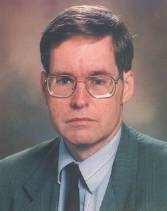August 1999
Whole Lotta Chakra Going On
By Michael J. Katin, MD
I was prepared to write the obligatory Y2K column this month, but something with more urgency and hesitancy presented itself. No, not the conclusion of the May column on inspections (maybe in October) but the need to address two powerful trends that may dramatically affect the way we practice radiation oncology.
In 1992, while future president Clinton was involved in defending her husband's candidacy against the Gennifer Flowers rumors rather than consolidating her plans for health care, the concept of "Evidence-Based Medicine" was conceived. When I first heard about this, I could have sworn the person was speaking about "Heaven and Space Medicine" and maybe there isn't that much of a difference in terms of complexity. The idea is that concrete information should be used to justify using any type of treatment, rather than relying on an individual practitioner's experience and prejudice, even if that person's outcomes are usually favorable. All too often, trends in medical practice have been based on somewhat flimsy support. Partially this may be due to searching for relatively non-morbid treatments with logistical advantages. Since most of these interventions have been covered by insurance, there has been little incentive to be too creative or aggressive, and also little incentive to withhold treatment if the gain is minimal. In fairness to our profession, we know that radiation therapy consistently kills cancer cells, and fine tuning in terms of dosage and the optimal use of our modality with other modalities is constantly but slowly pursued. Nonetheless, it is difficult to prove exactly which patients will get the most or least benefit since there are always some who do much better or worse than expected. Obviously there is room for improvement. But just try to defend with solid evidence each specific thing that you do for an individual patient, and see how difficult that would be.
At the same time, note that in October, 1998, our government set up a branch of the National Cancer Institute to deal with Complementary and Alternative Medicine. I believe the realm of interest is intended to include not just herbal remedies, some of which will have definite pharmacologic mechanisms, but the whole spectrum from acupuncture to aromatherapy to massage therapy to spiritualism. I could be cynical and say that it's about time we randomized patients to fasting versus flagellation, Pentecostals versus yoga, etc. Intervention with different belief systems would be fascinating and reminiscent of famous competitions in the past (Elijah vs. the priests of Baal--tonight on the Turner Broadcasting System). Unfortunately, these treatment approaches would be extraordinarily difficult to double blind and there would probably be too many variables to produce meaningful results even with stratification.
This results in our current method of practice being threatened by loss of coverage by managed care companies unless we can prove exactly what we accomplish, while at the same time these companies are showing interest in extending coverage to complementary and alternative techniques that have evidence of working in very specific individual cases and not generically. This is obviously frustrating to supporters of the status quo. What will be the outcome?
Consider two items: 1. How many years did it take to finally show that more rigorous control of blood sugar levels in diabetics truly leads to decreased morbidity from complications? 2. Check out how many people are wearing copper bracelets and magnets to treat arthritis. Now tell me that if you hire another associate, you would be better off if that person had subspecialty training in meditation or stereotactic radiosurgery.
email: mkatin@radiotherapy.com
